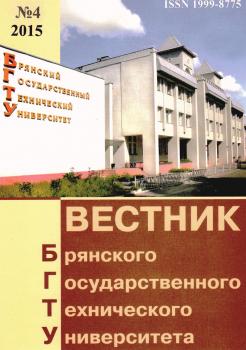Bryansk, Bryansk, Russian Federation
This paper describes actual problem of sentiment based aspect analysis and four deep learning models: convolutional neural network, recurrent neural network, GRU and LSTM networks. We evaluated these models on Russian text dataset from SentiRuEval-2015. Results show good efficiency and high potential for further natural language processing applications.
machine learning, aspect based sentiment analysis, neural networks, deep learning.
1. Blinov, P. Semantic similarity for aspect-based sentiment analysis / P. Blinov, E. Kotelnikov // Computational Linguistics and Intellectual Technologies: Papers from the Annual International Conference «Dialogue» (2015). - 2015. - Issue 14. - Vol. 2. - P. 12-21.
2. Deng, L. Deep Learning: Methods and Applications / L. Deng, Y. Dong // Foundations and Trends in Signal Processing. - 2014. - Vol. 7. - P. 197-387.
3. Distributed representations of words and phrases and their compositionality / T. Mikolov [et al.] // Advances in Neural Information Processing Systems. - 2013. - P. 3111-3119.
4. Elman, J. Finding structure in time / J. Elman // Cognitive science. - 1990. - Vol. 14. - № 2. - P. 179-211.
5. Empirical evaluation of gated recurrent neural networks on sequence modeling / J. Chung [et al.] // arXiv pre-print arXiv:1412.3555. - 2014.
6. Hochreiter, S. Long short-term memory / S. Hochreiter, J. Schmidhuber // Neural computation. - 1997. - Vol. 9. - № 8. - P. 1735-1780.
7. Jordan, M. Serial order: A parallel distributed processing approach / M. Jordan // Advances in psychology. - 1997. - Vol. 121. - P. 471-495.
8. Kim, Y. Convolutional neural networks for sentence classification / Y. Kim // arXiv preprint arXiv:1408.5882. - 2014.
9. Lakkaraju, H. Aspect Specific Sentiment Analysis using Hierarchical Deep Learning / H. Lakkaraju, R. Socher, C. Manning // NIPS Workshop on Deep Learning and Representation Learning. - 2014.
10. Natural language processing (almost) from scratch / R. Collobert [et al.] // The Journal of Machine Learning Research. - 2011. - Vol. 12. - P. 2493-2537.
11. On the properties of neural machine translation: Encoder-decoder approaches / K. Cho [et al.] // arXiv preprint arXiv:1409.1259. - 2014.
12. Pang, B. Opinion mining and sentiment analysis / B. Pang, L. Lee // Foundations and trends in information re-trieval. - 2008. - Vol. 2. - P. 1-135.
13. Pennington, J. Glove: Global vectors for word representation / J. Pennington, R. Socher, C. Manning // Proceed-ings of the Empiricial Methods in Natural Language Processing (EMNLP 2014). - 2014. - Vol. 12.
14. Recurrent neural network based language model / T. Mikolov [et al.] // INTERSPEECH 2010: 11th Annual Conference of the International Speech Communication Association, Makuhari, Chiba, Japan (September 26-30, 2010). - 2010. - P. 1045-1048.
15. Testing object-oriented sentiment analysis systems in Russian / N. V. Lukashevich [etc.] // Computational linguistics and intellectual technologies: Materials of the annual International Conference "Dialogue" (Moscow, May 27-30, 2015). In 2 Vol. Vol. 2. Reports of special sections. - M.: Publishing House of RSUH , 2015. - Issue 14 (21). - pp. 3-14.
16. "Dialogue" - Computational Linguistics International Conference. - URL: http://www.dialog-21.ru/.
17. Lukashevich, N. V. Open evaluating sentiment analysis systems in Russian / N. V. Lukashevich, I. I. Chetverkin // Artificial intelligence and decision-making. - 2014. - No. 1. - pp. 25-33.
18. Podvesovsky, A.G., Problems and features of monitoring automation of social networks and user messages intellectual processing / A.G. Podvesovsky, D. V. Budylsky // Bulletin of Bryansk State Technical University. - 2014. - No. 4 (44). - pp. 146-152.











